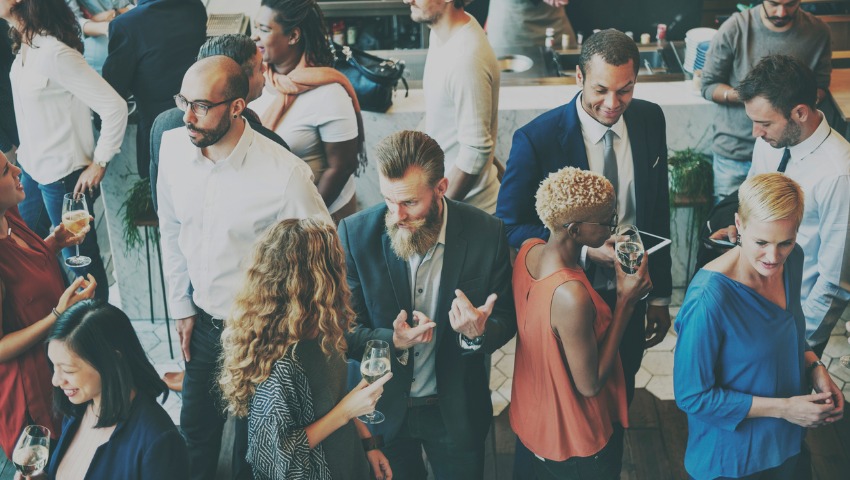It was April 2005 when the thought first struck me. I was in Hall 8 of Messe Frankfurt, walking down one of the aisles of IMEX—the international trade show I was working for at the time. It was 3 p.m. and the noise was incredible; everywhere I looked people were interacting: discussing, debating, gesticulating, negotiating, smiling, sharing, influencing and convincing and it was then, as I surveyed this sea of human connectivity, that I realized what powered the most successful global business events.
On that day, it occurred to me that those who were thriving at the exhibition weren’t necessarily promoting the best brands, products or services; instead they exceled at face-to-face human interaction and were highly skilled in the ability to connect, interact and communicate effectively with others. In short, I began realizing that as an organizer you could have the best location, the best venue, the best AV, the best F&B and the best content being delivered by the best speakers, but that it was the social skills of those attending that powered the success of your events.
Looking back, I have no doubt that my experience on that sunny spring day almost 15 years ago led me to the professional situation I find myself in today—working with a small team of behavioral psychologists, speaking and training internationally on a subject we have called Meetology—the behavioral science powering world-class social skills; a large element of which is dedicated to helping event organizers equip their attendees with the social skills needed to excel.
But what about your social skills?
Related: 11 No-Fail Icebreakers for Gal Bonding
The dichotomy of the meetings industry is that while its objective is to facilitate face-to-face interaction for professionals in other industries, the industry itself also offers a myriad of international trade events to attend where your social skills need to be on point too. I’ve delved into our vast library of bite-sized, behavioral nuggets and am sharing one from each of our 5-stage Meetology behavioral models in the hope they can help you excel too.
1. Prepare: Expect People to Like You
A recent study by Erica Boothby, published in Psychological Science found that most people are too pessimistic about how much strangers like them—something psychologists call The Liking Gap. Relax and try to remember that most people are too busy thinking about something far more important than you…themselves!
2. Connect: Offer a Smooth Handshake
Psychologists in Germany trained people to handshake using either a sharp, spiky manner or a fluid, smooth one. Those who had experienced a smooth handshake reported feeling psychologically closer to the experimenter and rated them as more likeable and open.
3. Interact: Ask the Right Questions
Researchers at Harvard Business School found that while asking questions increases likeability, asking follow-up questions had a particularly positive impact. An example would be asking someone to elaborate on something they had mentioned to you earlier in the conversation.
4. Resolve: Agree Before Disagreeing
To reduce the possibility of conflict, before disagreeing with someone, first point out how their current viewpoint is right before you explain your opinion. (Example: “Ah yes, you made a couple of really good points, I think these are important issues.”)
5. Influence: Use these two Simple Words
Behavioral research from Lisa Williams and Monica Bartlett suggests that a simple “thank you” can encourage openness and interpersonal warmth, even with strangers. If you want someone to co-operate with you, a simple ‘thank you’ note can be a powerful tool.
Remember, we humans are built to interact, and the fact we are social creatures is a powerful argument for the meetings industry to use as the events it delivers facilitate an important human need.
However, could you help your attendees even more?
In an industry increasingly needing to justify attending the events it creates, I believe the most successful events of the future will be those that equip those attending with the behavioral skills to better connect, interact and communicate on-site. After all, it is human interaction that powers the success of every business event this amazing industry delivers.
Jonathan Bradshaw is the creator of Meetology and an international speaker on the behavioral science powering world-class social skills. You can find him @meetology.




